
The Hidden Dangers-Microbial Contamination: Understanding the Risks and Testing Strategies
Author: Rahul Jayan Nandilath
24-10-2024Microbial contamination in food and water presents serious threats to human health, leading to foodborne illnesses and waterborne diseases. To ensure safety and prevent outbreaks, effective testing and identification methods are essential. Here we would like to share the various techniques and strategies for detecting microbial contaminants in food and water. Microbial contamination can arise from...
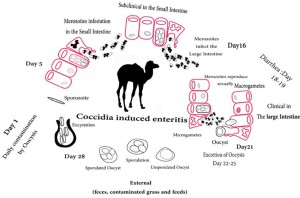
Eimeria Parasite Infection in Camels
Author: Ameen Yousif Ishag
23-10-2024Eimeria is a genus of protozoan parasites belonging to the family Eimeriidae, known for infecting the intestinal tracts of various animals. Among these hosts, camels (Camelus dromedarius and Camelus bactrianus) are particularly susceptible to Eimeria infections, which can lead to significant health issues and economic losses in camel husbandry.The life cycle of Eimeria is complex, involving both s...

Reviving Fujairah’s Arid Lands: Strategic Soil and water Management for Greening Efforts
Author: Riyafathima
22-10-2024The arid terrain of Fujairah, characterized by rocky mountains and minimal rainfall, presents significant challenges for vegetation and agriculture. Yet, the recent study conducted by the Fujairah Research Centre reveals promising strategies to transform these harsh landscapes into green havens. This blog explores the findings of the study, focusing on the soil characteristics, environmental condi...
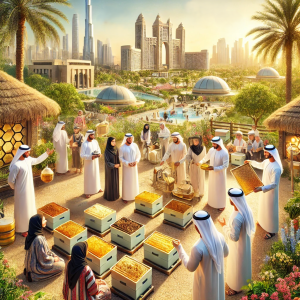
Apitourism: A Journey of Wellness, Sustainability, and Beekeeping Heritage
Author: Khawla Mohamed Alyammahi
18-10-2024Apitourism is an innovative form of tourism where beekeeping, wellness, and travel come together to create a unique, sustainable, and enriching experience for travelers. This type of tourism focuses on human-centered travel design, where the well-being, health, and needs of people are paramount, while simultaneously raising awareness about the crucial role bees play in nature and food production....

Lactate Testing: A Vital Indicator of Oxygen Imbalance and Metabolic Stress
Author: Muhammed Namseed Padinhar Ismail
17-10-2024Lactic acid, an intermediary in carbohydrate metabolism, is predominantly derived from skeletal muscle and erythrocytes. The blood lactate concentration depends on the rate of production in these tissues and the rate of metabolism in the liver. Lactic acidosis occurs in 2 clinical settings: Type A (hypoxic), associated with decreased tissue oxygenation, such as shock, hypovolemia, and pulmonary...
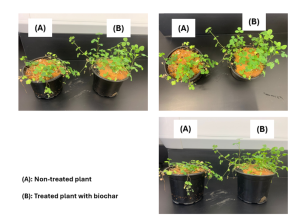
Eco-Friendly Soil Rejuvenation: Enhancing Arid Agriculture with Biochar Innovations at Fujairah Research Centre
Author: Dr.Francois Mitterand Tsombou
15-10-2024Soil is considered the main substrate for plant growth, playing a fundamental role in determining the quality and health of crops. In arid and semi-arid regions, which are characterized by limited water availability and low nutrient content, maintaining soil fertility is a significant challenge. These regions, often plagued by drought and poor soil structure, face additional risks from climate cha...
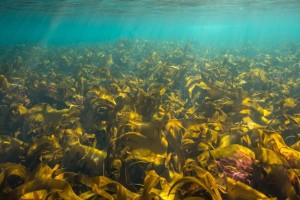
Enhancing Artificial Reefs with Kelp: A Blueprint for Marine Restoration.
Author: Engr. Sabhah Ali Obaid Alhmoudi
14-10-2024In Fujairah city, our artificial oyster reef has already been contributing to marine biodiversity and coastal protection, but we’re now entering an exciting new phase by adding kelp to the reef. Integrating kelp into the existing structure will create a more diverse and resilient ecosystem, supporting a wider range of marine species, including fish, crabs, and small invertebrates, that will benefi...
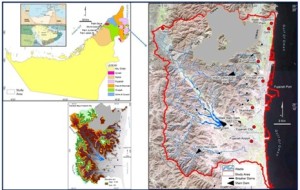
Understanding Soil Erosion in Fujairah City: A Comprehensive Study Using GIS and RUSLE Models
Author: Simon Zerisney
10-10-2024Soil erosion stands as a natural yet pressing environmental challenge that threatens the sustainability of land, ecosystems, and infrastructure across the globe. In Fujairah City, a region renowned for its arid climate and intricate wadi systems, this issue is particularly pertinent. The rising frequency of extreme rainfall events, flash floods, and shifting climatic patterns have significantly ac...
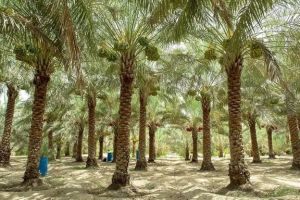
The Date Palm in the UAE: A Symbol of Heritage and Sustainability
Author: Reem Alraeesi
09-10-2024The date palm (Phoenix dactylifera) holds a special place in the UAE, representing both cultural heritage and sustainability. Deeply rooted in the region's history, it has provided sustenance, shelter, and economic value for generations. Today, the significance of the date palm continues, but with a modern twist—research is actively improving cultivation practices, enhancing sustainability, and pr...
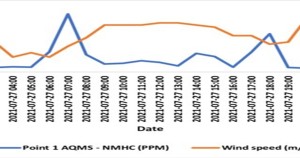
Enhancing Urban Air Quality Monitoring with eNose Sensors: Insights from Fujairah Research Centre
Author: Dr.Shaher Bano
08-10-2024In recent years, urban air quality has become a pressing concern worldwide due to the detrimental effects of non-methane hydrocarbons (NMHCs) on public health and the environment. NMHCs, which encompass a diverse range of volatile organic compounds, play a critical role in the formation of ground-level ozone and secondary organic aerosols. These pollutants are known to exacerbate respiratory issue...
